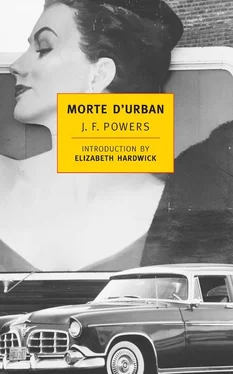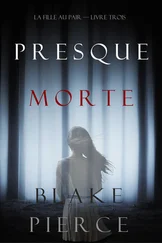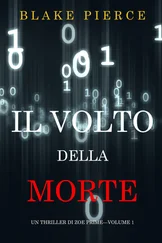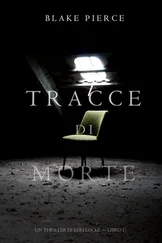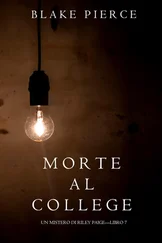“I’ll have to do that,” said Mr Inglis.
“Go ahead. I’ll wait,” Billy said.
“What d’ya smoke?” said the other man, the fat one, to Father Urban.
“Usually cigars,” said Father Urban, raising the one in his hand.
“Bob,” said the man, putting out his hand.
They shook hands, though they’d done so earlier, and since Bob showed no interest in his name, Father Urban didn’t repeat it.
“Here. Try one of mine,” Bob said, shuffling a cigarette half out of the pack. “They’re all new.”
“Maybe later,” said Father Urban, showing Bob the cigar again.
“Go ahead.” Bob shuffled the cigarette farther out of the pack. “They’re all new. No filter.”
“All right,” said Father Urban, taking the cigarette. “I’ll smoke it later.”
“Smoke it now. Go ahead. Here.” Bob struck a match for Father Urban.
“Thanks,” Father Urban said, and there he was with a cigar in one hand, a cigarette in the other.
“What d’ya drive?”
“We have a new Rambler station wagon.”
“How d’ya like it?”
“Fine.”
“What’re you doing about parking in your town?”
“No problem.”
“No? Where you from?”
“For many years I traveled out of Chicago—”
“Chicago! Don’t tell me you haven’t got a problem there!”
“I now call Minnesota my home. Duesterhaus. Near Duesterhaus. No problem.”
“You won’t like this, but some of these little towns are worse than the big ones.” Bob said he was proud of the facilities in his town, which was second to Rochester in the state. “That’s on a parking space — per capita basis.”
“Is this your business — parking?”
“Oh hell, no.”
“You just feel strongly about it?”
“Oh hell, no. We had this problem in our town, and we licked it. Why can’t others do the same? What d’ya drive?”
“Rambler.”
“How d’ya like it?”
“Fine,” said Father Urban, putting out the cigarette.
Honey brought Bob a steak sandwich.
“Sure you won’t have something, Mother?”
“No, thanks,” Honey said. She was sober.
“How about you, doc?” Bob said to Father Urban.
“No, thanks.”
“Like to have you meet my wife.” Bob’s wife was dancing with Paul.
“I met her. Very nice.” Father Urban turned back to Mrs Inglis and Chester. Earlier he had been discussing the course at the Hill with Mrs Inglis, a golfer, and not a bad-looking woman. She was a southerner who’d had the good fortune to marry a man by the same name (“I’ve never changed my name!”). Father Urban had pulled out of the conversation with Mrs Inglis after she said she was going to tell him a secret if she wasn’t careful. Before that, he had more or less given up on Chester, who had put on a black leather bow tie for the evening and was now talking about the first Mrs Henn. “See anything funny about that sign?” he asked Mrs Inglis and Father Urban.
Father Urban concentrated on the sign, but saw nothing funny about it. It simply said, “WE DON’T KNOW WHERE MOTHER IS, BUT WE HAVE POP ON ICE.”
“You never saw one that said ‘Mother’ before,” Chester said. “They all say ‘Mom.’”
“He’s right!” cried Mrs Inglis.
“That could very well be,” said Father Urban.
Billy joined them. “You know that friend of yours, Father Louis? He’s not a bad guy, but he’s a knocker. And that other friend of yours, Monsignor Whatsit, he’s another. All your friends seem to be knockers.”
“Oh, I wouldn’t say that,” said Father Urban.
“Doc Strong had that sign made special for Mother,” Chester said.
“His first wife,” Billy explained to Mrs Inglis.
“When Mother died, I was going to take it down,” Chester said. “But I talked it over with people that knew Mother. Like Doc Strong. Doc knew Mother as well as I did. And Doc said no.”
“I still think you should take it down,” Billy said.
“Doc said, ‘Mother wouldn’t want us to take it down.’”
Paul and Bob’s wife were still dancing but everybody else — Mr and Mrs Inglis, Honey and Billy, Bob and Father Urban — observed a moment of silence. For Father Urban, it was a painful moment.
“ That’s the kind of person she was,” Chester said.
After another painful moment, Billy said, “All right, Chester. But should we leave it up when you check out?”
Everybody was watching Chester.
Father Urban stood up, saying, “Chester, if I were you I wouldn’t try to answer that question now.” He let it be seen that he was saying good night. He bowed to Mrs Inglis, shook the hand of Mr Inglis, who was standing, and asked Bob, for whom standing would have been difficult, not to move.
Billy tried to get Father Urban to stay. “Some office to say, Billy.” And Billy, who only once before during the evening had shown the company his better side, while at the piano (“And now, folks…”), took it very well. He explained to Mrs Inglis that Father Urban really wanted to stay — to dance and have fun — but couldn’t because he belonged to a very penitential order.
Father Urban, looking back as he went out the door, and waving an adieu, was afraid that Billy was developing the penitential theme for the whole company. Well, if so, it couldn’t be helped. There were worse things to worry about. Two days and nights of close association with Billy had left Father Urban feeling anything but complacent about their relationship. More had to be done for Billy in a spiritual way than Father Urban had been doing. Fortunately, the sins of the flesh weren’t the worst kind. Billy’s character, however, wasn’t quite what Father Urban had believed it to be. A few spoons seemed to be missing.
Billy, Paul, and Father Urban set forth the next morning, with Billy at the outboard motor — a different and more powerful one. During the night’s revels, Billy had decided that Chester was bad luck, and had told him so, which was a hell of a thing to say to a guide, and so Chester wasn’t in the boat. As for Paul, he had said the day before that Billy wouldn’t get him into the boat again, which probably accounted for his presence there. Father Urban wished that none of this were happening.
Billy ran them around Bloodsucker twice — in the hope, Father Urban guessed, of embarrassing Chester, who was not recommending it that season. Billy then took the boat up a narrow, stumpy stretch of water leading into Snowflake. Chester had warned them to reel in if they went through there, and Father Urban and Paul did so. Billy didn’t. He had trolled through there the day before, he said. This time, though, his hook caught on something. He took the boat back and worked for a while to free his line. Then he got mad and broke it. “That didn’t feel like twenty-five-pound test to me,” he said. Then he had to put on a whole new works — leader, spinner hook, and minnow. “Here,” he said to Father Urban, motioning him to take charge of the motor, “you’re not doing anything.”
No way to address me, Father Urban thought. They changed seats, Father Urban sitting in the stern on one of the two life-preserver cushions in the boat. Before Billy sat down, Paul slipped the other cushion under him, restoring it to its proper place. (Paul, first into the boat that morning, had taken the cushion to his place in the bow, and Father Urban had been quietly doing without it.)
Father Urban took the boat into Snowflake and turned right, as Chester had done the day before. He kept fairly close to the shore. Billy grabbed a minnow from the pail at his feet, took a stitch in its back with the hook, and cast it out behind the boat. It made a little splash.
Читать дальше
